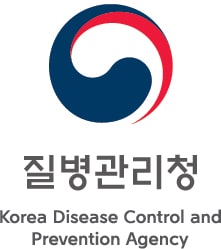Main Projects
Seoul National University Hospital Rare Disease Center: cutting-edge research and clinical care for rare diseases.
Coordinating Center for
Rare Disease
We aim to improve the quality of medical services provided to patients with rare diseases as a Rare Disease Central Support Center.
K-UDP
The Korean Undiagnosed Rare Disease Diagnosis Research Program (K-UDP) focuses on patients with yet unidentified diseases.
Rare Disease Program for
Pediatric Cancer
Through research-based diagnosis and treatment, we are leading international healthcare and improving the quality of life for domestic children with rare diseases.
AI for Children
Applicable AI solutions in the entire process of diagnosis, treatment, and prognostic health management of rare pediatric diseases.
Genetic Diagnosis Support Program
The “Genetic Diagnosis Support for Rare Diseases Program” supports genetic tests in the case of ultra-rare diseases, which are currently covered by special healthcare benefits.
As of January 2023, the program supports genetic testing for 72 commissioning bodies and 299 ultra-rare diseases.
Diagnosis commissioning body
1. Sends clinical information, consent form, and patient data
1. Sends clinical information, consent form, and patient data
2. Notifies results of diagnosis
2. Notifies results of diagnosis

Genetic Diagnosis Support Agency
[Contractor]
Seoul National University Hospital
- Establishment and standardization of genetic diagnostic methods
- Genetic diagnosis and result notification service
3. Diagnostic result report
3. Diagnostic result report

- Selection of diagnosis commissioning bodies
- Selection of diagnosis support institutions
- General management of operations
The National Bio Big Data Project
The ‘National Bio Big Data Construction Project’ is a large-scale government-led project that creates data to predict and diagnose diseases that Koreans are particularly vulnerable to. It aims to collect health and genetic information of Koreans through voluntary participation, manage the information within a safe and secure platform, and establish a system for qualified researchers to analyze.
The pilot project was conducted on patients of rare diseases and their families for about two years from June 2020. Seoul National University Hospital’s Rare Disease Center registered about 23% of the total recruitment targets as a patient recruitment agency, and at the same time was in charge of patient recruitment standards and data quality management throughout the pilot project.
2017
Undiagnosed Rare Disease Diagnosis
Research Program Project
(’17-’22)
2019
Selection of the Center
Coordinating Center for Korean Rare Disease
(19.01 ~)
2022
Undiagnosed Rare Disease Diagnosis
Research Program Project
(’17-’22)
2021
Lee Kun-hee Cancer/Rare Disease
Overcoming Project
(Rare Disease Project)
(’21 ~)
2021
Lee Kun-hee Cancer/Rare Disease
Overcoming Project
(Rare Disease Project)
(’21 ~)
2022
Undiagnosed Rare Disease Diagnosis
Research Program Project
(’17-’22)
Genetic Diagnosis Support Program
The “Genetic Diagnosis Support for Rare Diseases Program” supports genetic tests in the case of ultra-rare diseases, which are currently covered by special healthcare benefits.
As of January 2023, the program supports genetic testing for 72 commissioning bodies and 299 ultra-rare diseases.
Diagnosis commissioning body
1. Sends clinical information, consent form, and patient data
2. Notifies results of diagnosis

Genetic Diagnosis Support Agency
[Contractor]
Seoul National University Hospital
- Establishment and standardization of genetic diagnostic methods
- Genetic diagnosis and result notification service
3. Diagnostic result report

- Selection of diagnosis commissioning bodies
- Selection of diagnosis support institutions
- General management of operations
The National Bio Big Data Project
The ‘National Bio Big Data Construction Project’ is a large-scale government-led project that creates data to predict and diagnose diseases that Koreans are particularly vulnerable to. It aims to collect health and genetic information of Koreans through voluntary participation, manage the information within a safe and secure platform, and establish a system for qualified researchers to analyze.
The pilot project was conducted on patients of rare diseases and their families for about two years from June 2020. Seoul National University Hospital’s Rare Disease Center registered about 23% of the total recruitment targets as a patient recruitment agency, and at the same time was in charge of patient recruitment standards and data quality management throughout the pilot project.
Diagnosis commissioning body
1. Sends clinical information, consent form, and patient data
1. Sends clinical information, consent form, and patient data
2. Notifies results of diagnosis
2. Notifies results of diagnosis

Genetic Diagnosis Support Agency
[Contractor]
Seoul National University Hospital
- Establishment and standardization of genetic diagnostic methods
- Genetic diagnosis and result notification service
3. Diagnostic result report
3. Diagnostic result report

- Selection of diagnosis commissioning bodies
- Selection of diagnosis support institutions
- General management of operations